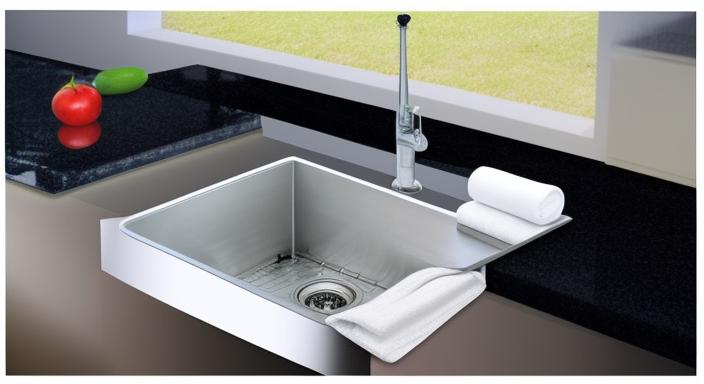Sometimes, especially during winter, you want to do everything with hot water. From taking a shower, cleaning vegetables and washing dishes, the use of hot water is countless. But imagine getting into the kitchen and you have to wait for a long to have the water hot. It isn’t very pleasant. Besides, you waste a lot of your time, water and energy.
If you are in that state whereby your sink is producing hot water slowly, what follows is to look for a solution. Luckily, there are several solutions out there. This guide gives you several tips on getting hot water faster at the kitchen sink.
There are different ways you can consider to make sure your kitchen sink gives hot water faster. They include:
- Insulating your hot water pipes.
- Install a Recirculation pump to the water lines.
- Change the water fixtures to those with a high flow rate.
- Replace the heater with an advanced tankless water heater.
- Consider doing preventative maintenance.
What makes water from your kitchen sink take a long to be hot?
Your sink in the kitchen is taking long to produce hot water? Without any doubt, the first thing you will do before getting the solution is to know what could lead to that. There are several causes. Below is a discussion about them.
Size and thickness of the pipes
The pipe size can impact how fast hot water reaches the kitchen sink faucet. You will be in trouble if the diameter of the pipes is large. This is because such pipes tend to hold a lot of water. That is the same way hot water takes longer from the water heater to your faucet.
Also, note that the thickness of your pipes impacts the water quality from your tap. When the pipes are thick, the walls pull plenty of water through them. Hence, when hot water reaches your faucet, it will not be as hotter as you may have preferred. This makes water take longer than necessary to get hot.
Volume restrictors
Some faucets at your kitchen sink have volume restrictors. In general, these restrictors make the faucet have a low flow rate. But they help conserve water and save on costs. Volume restrictors may cause your sink to produce hot water slowly. Remember, any time there is a low flow rate from the faucet, you have to wait for a long for the water to become hot.
Distance from water heater
This is another cause of delayed hot water delivery from your kitchen sink. When the distance between the water heater and the sink is long, it takes longer for hot water to flow to the faucet.
If hot water travels long before it reaches the faucet, be ready to get cold water from the kitchen sink. Thus, you must wait a long to have a hot water flow. This can make you waste time, water and money in the process.
Current water in the pipes
The present amount of water in the pipes contributes to the time it takes for the water to get hot. Once you turn the faucet on, water begins to flow from it. But, what comes out is cold water first. Remember, this is the water that was in the pipe. This pushes you to wait for the water to be hot.
5 ways to get hot water faster in the kitchen sink
Glad that you now know what can slow hot water deliver in your kitchen sink. Ready to solve the issue? Remember the possible methods you need to consider to have hot water flow fast.
1. Pipes insulation
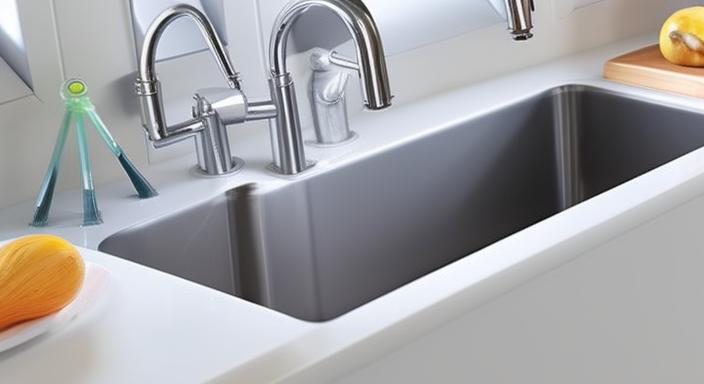
There are several reasons your kitchen sink is taking a long to produce hot water. A common one is cold pipes drawing heat from hot water traveling through the pipes. Pipe insulation is the solution to this. Be aware that insulated pipes can keep the water temperature 2-4 degrees higher than non-insulated pipes.
Insulated pipes ensure that the water inside remains hot for a long. This allows it to reach your faucet while hot. Hence, minimizing the time waiting for hot water to flow from your faucet. Another amazing thing about pipe insulation is that it reduces the rate of mold growth. Rubber pipe sticks and fibreglass pipe wrap are good examples of standard pipe insulation.
2. Install a hot water recirculation pump to the water lines
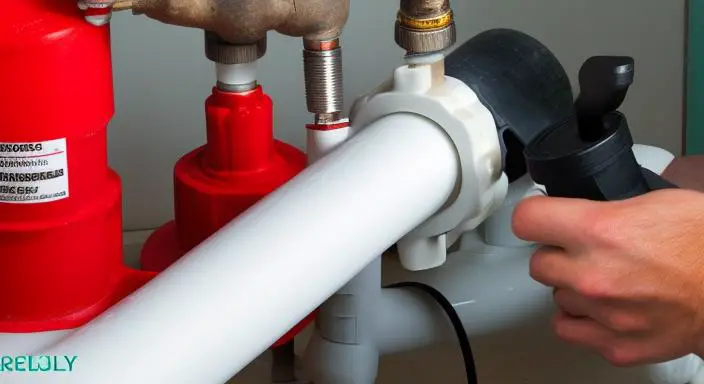
If you are looking forward to having your hot water delivered to your kitchen sink fast, consider installing a hot water recirculating system. Its major role is ensuring your unused water is circulated back to the water heater. This allows the water in the system to remain hot. Therefore, water will take a short time to be hot. A hot water recirculating system helps you to save water, money, time and energy.
3. Change the water fixtures to those with a high flow rate
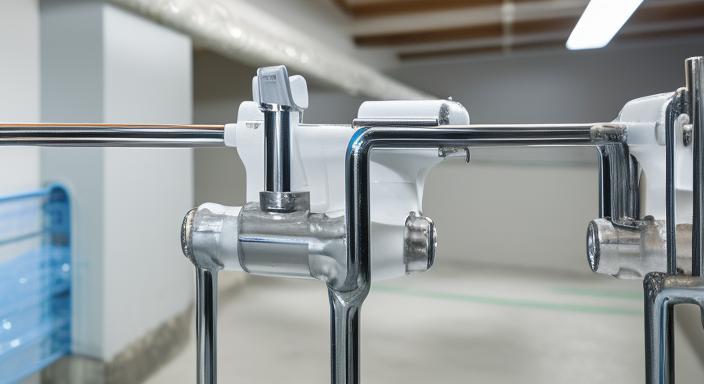
Most of the faucets have a volume restrictor. This is what makes the flow of water slowly. Thus, you will need to wait a long for the water to get hot. You can solve the issue by replacing the faucet with a high flow rate. But, you must ensure that the faucet’s flow rate does not go above the maximum amount.
4. Replace the heater with an advanced tankless water heater
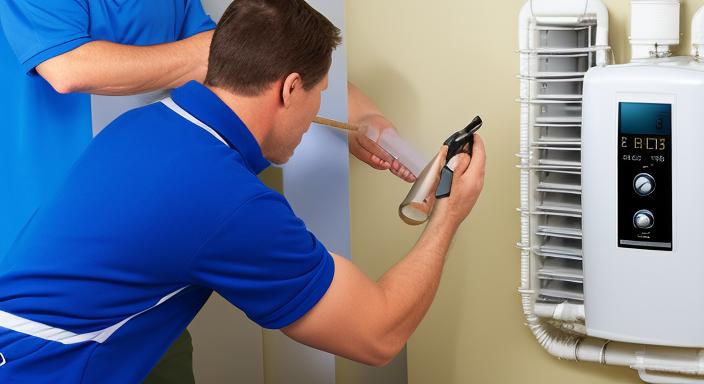
Another great change you can make to allow hot water to flow fast in your kitchen sink is using a tankless water heater. You realize many homes use the new tank model as their water heater. When you upgrade to a tankless water heater, be assured you will have solved the issue.
Tankless water heater does not store hot water in tanks. Thus, when you open the faucet, water flows through the pipes into the tankless water heater. In a tankless water heater, water gets heated by electricity or gas. This allows you to get a constant water flow of hot water from the faucet.
Besides having hot water flow fast in your kitchen sink, a tankless water heater gives you a guarantee of saving energy. Traditional tank heaters tend to consume plenty of energy because they have to heat and reheat the stored water Even if it is not being used. Tankless water is the best as it heats the only required water. You will save a lot of energy by heating the water.
5. Consider doing preventative maintenance
Make sure you look after your water heater to reduce issues of getting hot water faster. Routine preventative maintenance is a perfect method you can consider. It is wise not to allow minor issues to become major problems in the future. The best way to prevent this is by calling an expert to check your water heater system regularly. If leaks in the water heater system have corrosion, rust or produce lukewarm water, consider replacing it.
Frequently Asked Questions (FAQs)
What are the benefits of getting hot water faster at my kitchen sink?
Convenience is the major reason for getting hot water faster in your kitchen. If you run out of time, it is annoying to wait for the hot water to reach the tap. You might be forced to leave your utensils unwashed or take longer to clean the vegetables. Having hot water in your kitchen tap is also advantageous as it helps to reduce your energy costs. This is because running the tap and hot water will take a shorter time.
How do I maintain a hot water recirculation system?
Gladly, it is fairly simple to maintain a hot water recirculation system. Take your time to check the system regularly for leaks and any possible issues. Ensure the pump is working properly. Furthermore, regularly replacing worn-out parts like the pump is advisable.
Can a water heater booster make you get hot water faster at your kitchen sink?
This is a question a lot of people ask. And the answer to it is no. The major role of the water booster is to mix cold water from the input valve with the hot water. If you are looking forward to getting hot water for a long time, consider a water heater booster. Nonetheless, remember that it does not make hot water flow fast.
How much does it cost to install a hot water recirculation system?
The amount you will pay for your hot water recirculation system installation ranges from $500 to $2000. This is dependent on the system type and the installation complexity.
What is a hot water recirculation system?
This is a device installed in the hot water line of your home. For the sake of keeping hot water circulating through the pipes, the system uses a pump. This ensures you do not have to wait for hot water once you turn on the tap.
Video: How to Get Hot Water Faster Upstairs, in Shower, and at Kitchen Sink
Rita C. Donnell (Jennifer) has spent the last 26 years studying and practicing nutrition science. She has used a larger part of this time in improving people’s livelihoods. She has done so by coming up with unquestionable ideas on how to tackle food problems in her community. Readmore

